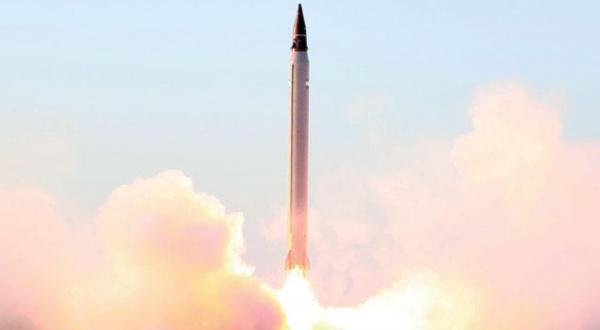
A picture of a long-range ballistic missile launched by the Iranian army on the 11th of October last year (AP)
The Commander in Chief of the Iranian Army Major General Ataollah Salehi said yesterday that Iran will continue to develop its missile program and that this should not be considered a threat to neighbouring countries. Most of the international sanctions imposed on Iran over its nuclear program have been lifted under the agreement signed by Tehran and world powers last year but the sanctions imposed on its missile program have remained in place. In accordance with Security Council resolution 2231 which was issued on the 20th of July last year to support the nuclear deal, Iran is “invited” to refrain from working on ballistic missiles designed to carry a nuclear warhead for a period of up to eight years.
Resolution 2231 demands that Iran halts any activity related to designing ballistic missiles capable of carrying nuclear warheads for the first eight years of the implementation of the nuclear agreement and that it halts missile tests.
Salehi, who was speaking at the funeral of the former chief commander of the Iranian Army Major General Mohammad Salimi, said that “Iran’s missile capability and its missile programme will become stronger and we do not care and will not implement decisions issued against Iran. This is not a violation of the nuclear deal”. Salehi denied that Iran’s missile capabilities are directed at his country’s neighbours and friends in the region.
In a related context the Iranian Chief of Staff General Hassan Firouzabadi said that American forces want to “strike” the commander of Al Quds Force, the external arm of the Iranian Revolutionary Guards, Qasem Soleimani. Firouzabadi stressed that his forces are providing Soleimani with the protection that he requires. He denied rumours about Soleimani being injured in the battles of Aleppo and accused Washington of being behind the “rumours”. Referring to the role of the Al Quds Force commander in Syria, Firouzabadi said that Soleimani is one of the main commanders in the Mahdi Army.
